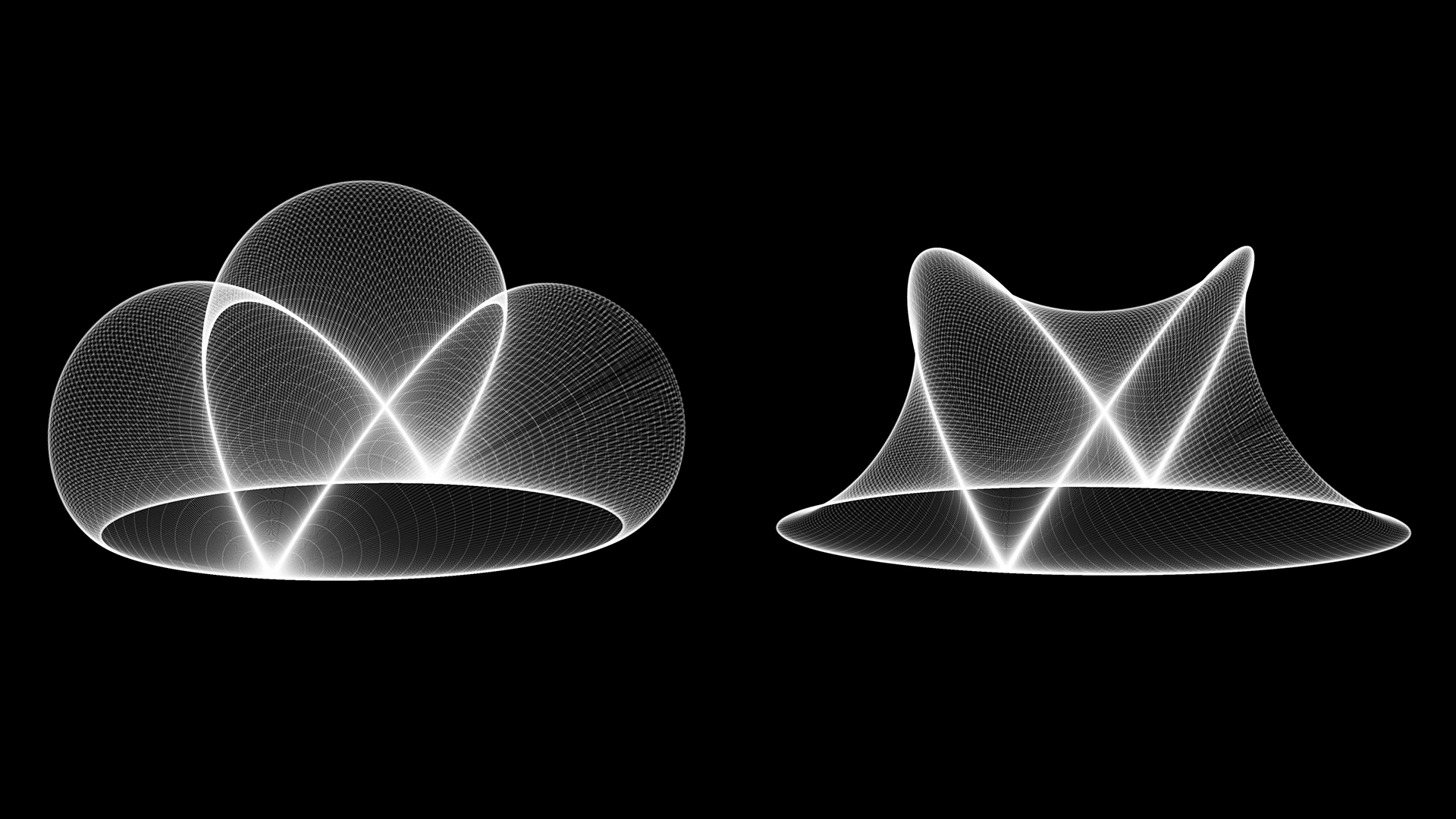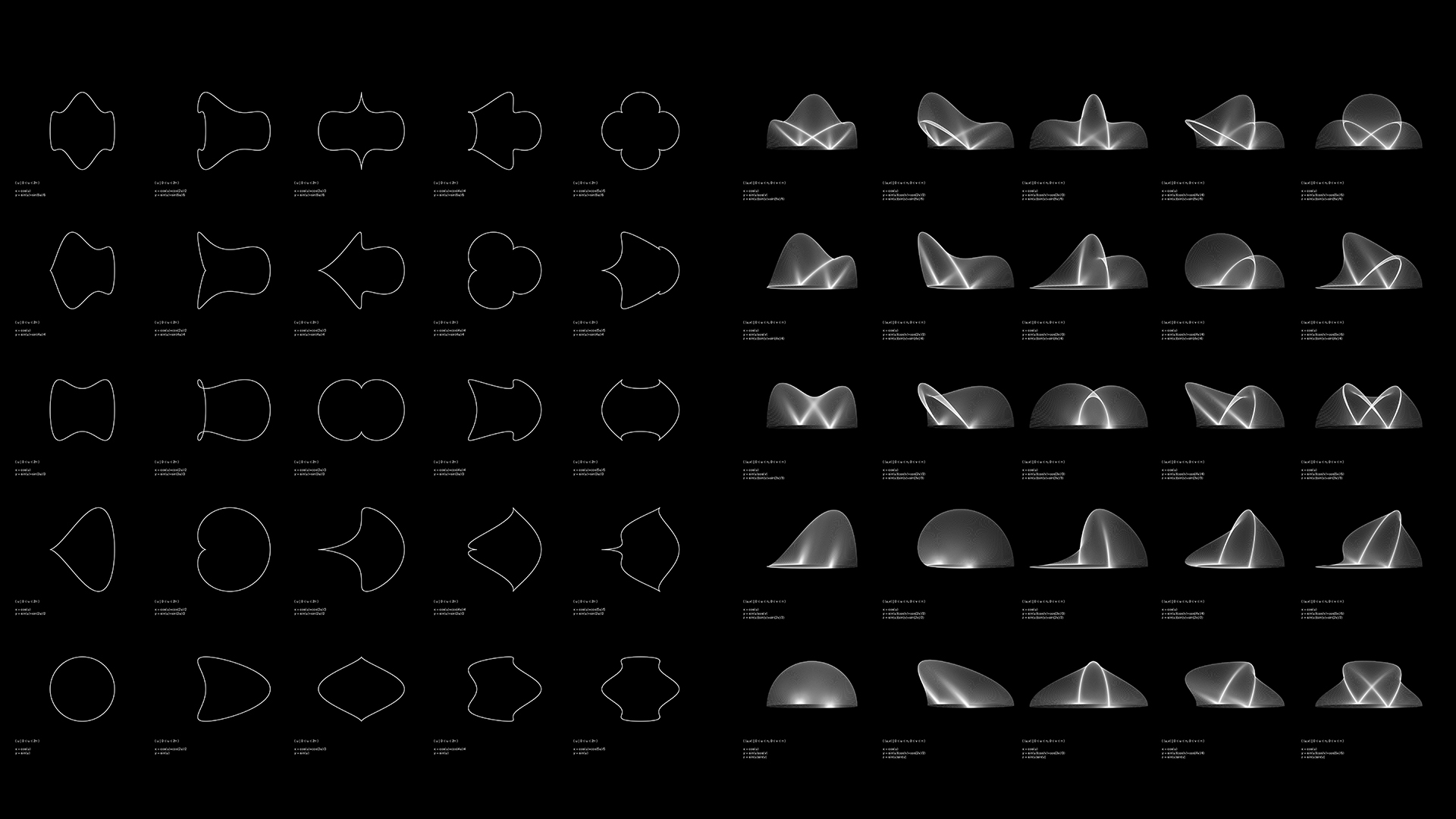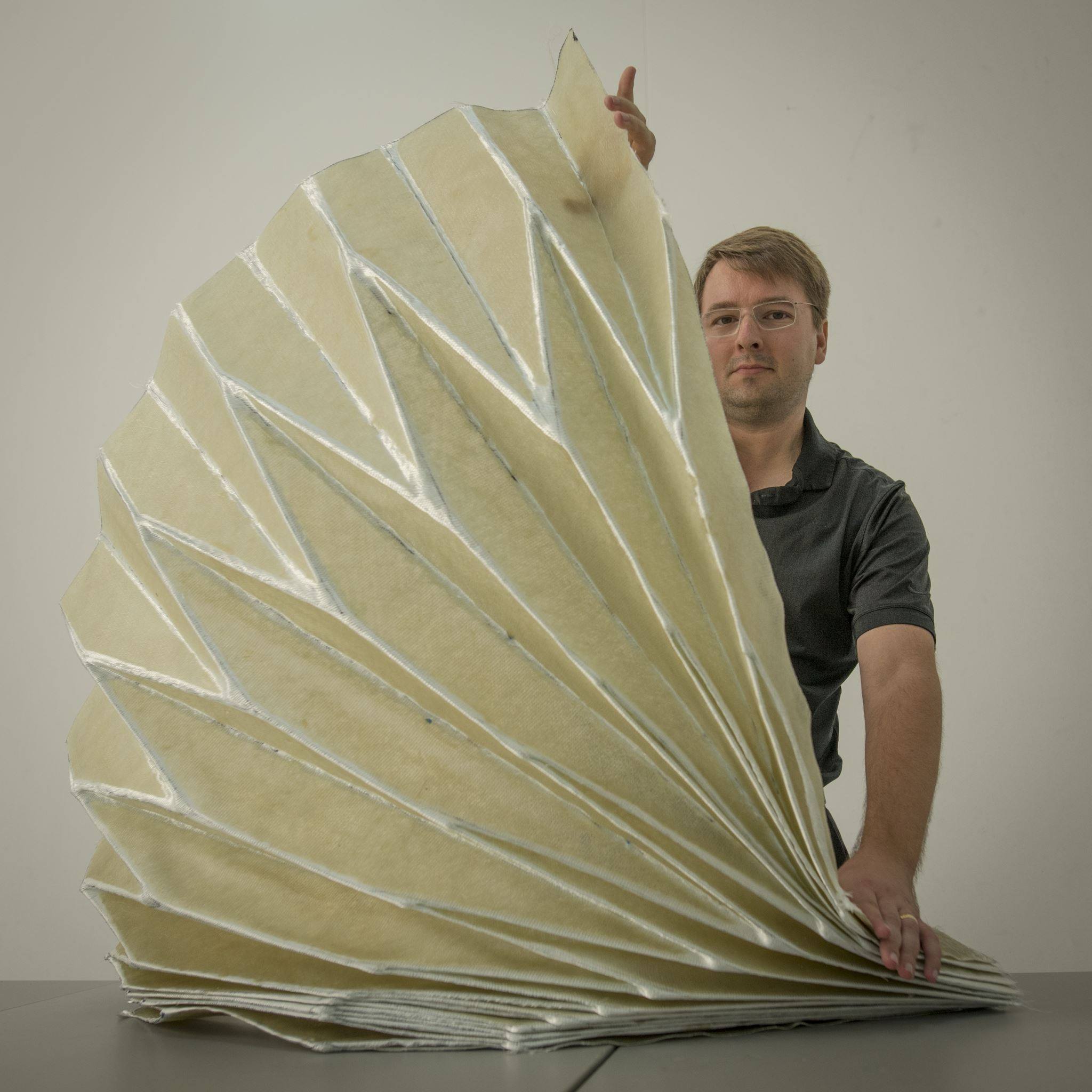Computational Design | Online Workshop | English | North-South Americas
Description:
Cylinders, spheres and cubes are a small handful of shapes that can be defined by a single word. However, most shapes cannot be found in a dictionary. They belong to an alternative plastic world defined by trigonometry: a mathematical world where all shapes can be described under one systematic language and where any shape can transform into another. This workshop systematically lays out a basic foundation for using mathematical transformations as design tools. In general, students will learn how to design with parametric equations — one way of defining values of coordinates (x, y, z) for shapes with parameters (u, v).
First, students will learn how to manipulate two-dimensional shapes with mathematical transformations. Next, students will learn how to embed two-dimensional profiles into three-dimensional shapes. Other topics, such as combining transformations and taxonomies will also be introduced. Lastly, students will be taught how to record design iterations through ghosted wireframe drawings. These representational abstractions of doubly curved surfaces will be viewed as objects-to-think-with... somewhere between dreams and reality.
This workshop is intended for architects, designers, engineers and anyone with the curiosity to understand the link between shapes and the equations behind them.


Key Words:
computational geometry,mathematical transformations,topology,morphing
Required Skills:
Proficient in Rhinoceros, Basic Understanding of Parametric Modeling
Required Software:
Rhinoceros (RhinoScript or Python) and Adobe Creative Suite
Required Hardware:
None
Maximum number of participating students:
16
First, students will learn how to manipulate two-dimensional shapes with mathematical transformations. Next, students will learn how to embed two-dimensional profiles into three-dimensional shapes. Other topics, such as combining transformations and taxonomies will also be introduced. Lastly, students will be taught how to record design iterations through ghosted wireframe drawings. These representational abstractions of doubly curved surfaces will be viewed as objects-to-think-with... somewhere between dreams and reality.
This workshop is intended for architects, designers, engineers and anyone with the curiosity to understand the link between shapes and the equations behind them.


Schedule:
Jun 28 - Jul 1
-
Day 1 / Jun 28
-
Day 2 / Jun 29
-
Day 3 / Jun 30
-
Day 4 / Jul 1
Instructors:
-
 Joseph Choma Clemson University,Associate Professor of ArchitectureJoseph Choma is the Founder of the Design Topology Lab and an Associate Professor of Architecture at Clemson University, where he directs the Master of Science in Architecture program. He is the author of three books: Morphing: A Guide to Mathematical Transformations for Architects and Designers (Laurence King Publishing, 2015), Études for Architects (Routledge, 2018), and The Philosophy of Dumbness (ORO Editions, 2020). As a researcher, his interests lie at the intersection of mathematics, folding, structure and materials. He has received awards from both the American Institute of Architects and the American Composites Manufacturers Association. His recent material explorations have been noted by CompositesWorld Magazine as “spearheading research into the use of foldable composites." In particular, he is the inventor of ‘Foldable Composite Structures’ — U.S. Patent Number 10,994,468. In 2018, he was a keynote speaker at the Future of Architecture and Building Biennale in Mumbai, India. In 2019, he was a keynote speaker at FAB15 in Egypt. Recently, he was selected for the 2019-20 NCCR Digital Fabrication Researcher in Residence at the ETH Zurich. He completed graduate studies in design and computation at the Massachusetts Institute of Technology.
Joseph Choma Clemson University,Associate Professor of ArchitectureJoseph Choma is the Founder of the Design Topology Lab and an Associate Professor of Architecture at Clemson University, where he directs the Master of Science in Architecture program. He is the author of three books: Morphing: A Guide to Mathematical Transformations for Architects and Designers (Laurence King Publishing, 2015), Études for Architects (Routledge, 2018), and The Philosophy of Dumbness (ORO Editions, 2020). As a researcher, his interests lie at the intersection of mathematics, folding, structure and materials. He has received awards from both the American Institute of Architects and the American Composites Manufacturers Association. His recent material explorations have been noted by CompositesWorld Magazine as “spearheading research into the use of foldable composites." In particular, he is the inventor of ‘Foldable Composite Structures’ — U.S. Patent Number 10,994,468. In 2018, he was a keynote speaker at the Future of Architecture and Building Biennale in Mumbai, India. In 2019, he was a keynote speaker at FAB15 in Egypt. Recently, he was selected for the 2019-20 NCCR Digital Fabrication Researcher in Residence at the ETH Zurich. He completed graduate studies in design and computation at the Massachusetts Institute of Technology.